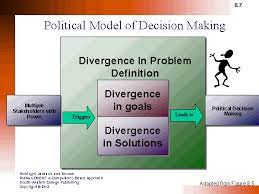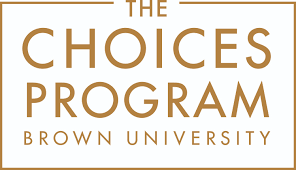The Power of Group Decision Making
Group decision making is a process where multiple individuals come together to analyze problems or situations, generate solutions, and make choices collectively. This approach to decision making has gained popularity in various settings, from businesses to community organizations, due to its numerous benefits.
Benefits of Group Decision Making
- Diverse Perspectives: When a group of individuals with different backgrounds, experiences, and expertise collaborate on a decision, they bring diverse perspectives to the table. This diversity can lead to more creative and innovative solutions.
- Increased Information: By pooling their knowledge and information, group members can make more informed decisions. Each member may have unique insights that contribute to a comprehensive understanding of the situation.
- Enhanced Problem-Solving: Group decision making allows for brainstorming and idea generation, leading to a wider range of potential solutions. Members can build on each other’s ideas and work together to find the best course of action.
- Higher Commitment: When individuals participate in the decision-making process, they are more likely to be committed to implementing the chosen solution. This can lead to greater accountability and follow-through.
Challenges of Group Decision Making
While group decision making offers many advantages, it is not without its challenges. Some common obstacles include:
- Conflict: Differences in opinions or personalities can lead to conflict within the group. Managing disagreements effectively is essential for productive decision making.
- Groupthink: In an effort to maintain harmony, group members may conform to a consensus opinion without fully evaluating all options. Guarding against groupthink is crucial for ensuring quality decisions.
- Inefficiency: Group decision making can be time-consuming as members discuss various perspectives and options. Proper facilitation and time management are necessary to prevent inefficiencies.
Tips for Effective Group Decision Making
To maximize the benefits of group decision making and overcome challenges, consider the following tips:
- Foster Open Communication: Encourage all group members to share their thoughts and ideas freely without fear of judgment.
- Establish Clear Goals: Define the purpose of the decision-making process and establish clear objectives that guide discussions towards a resolution.
- Assign Roles: Designate specific roles within the group (e.g., facilitator, timekeeper) to ensure smooth collaboration and efficient progress.
- Maintain Focus: Stay focused on the task at hand and avoid getting sidetracked by irrelevant discussions or distractions.
- Evaluate Options Critically: Encourage critical thinking by evaluating each option objectively based on its merits rather than personal biases or preferences.
In conclusion, group decision making harnesses the collective wisdom and creativity of individuals to arrive at well-informed choices that benefit the entire group. By leveraging diverse perspectives, information sharing, and collaborative problem-solving techniques, groups can make decisions that are more robust and effective than those made individually.
Mastering the Art of Collaboration: A Guide to Effective Group Decision Making
- What is group decision making?
- What are the benefits of group decision making?
- What are the challenges of group decision making?
- How can diverse perspectives enhance group decision making?
- What role does communication play in effective group decision making?
- How can conflicts be managed in a group decision-making process?
- What is groupthink and how does it impact decision making within a group?
- How can efficiency be maintained in group decision making?
- What strategies can be used to overcome obstacles in group decision making?
What is group decision making?
Group decision making refers to the process in which a group of individuals come together to analyze a problem, consider various perspectives, generate potential solutions, and ultimately make a collective choice. This collaborative approach to decision making allows group members to leverage their diverse backgrounds, expertise, and insights to arrive at a well-informed and consensus-driven decision. By pooling their knowledge and resources, group decision making can lead to more creative solutions, enhanced problem-solving capabilities, and increased commitment to the chosen course of action.
What are the benefits of group decision making?
Group decision making offers a multitude of benefits that make it a valuable approach in various contexts. One key advantage is the diverse perspectives brought to the table by individuals with different backgrounds and expertise. This diversity leads to more innovative and creative solutions. Additionally, group decision making allows for increased information sharing among members, leading to more informed choices. By fostering collaboration and idea generation, groups can enhance their problem-solving capabilities and explore a wider range of potential solutions. Furthermore, the participation of individuals in the decision-making process often results in higher commitment to implementing the chosen solution, promoting accountability and follow-through.
What are the challenges of group decision making?
Group decision making presents several challenges that can impact the effectiveness of the process. One common challenge is the potential for conflict among group members due to differing opinions, priorities, or communication styles. Managing these conflicts constructively is crucial to prevent them from derailing the decision-making process. Another challenge is the risk of groupthink, where members prioritize harmony over critical evaluation of options, leading to a lack of diverse perspectives and potentially suboptimal decisions. Additionally, inefficiencies can arise in group decision making, as discussions may become lengthy or unfocused without proper facilitation and time management. Overcoming these challenges requires open communication, effective conflict resolution strategies, and a structured approach to decision making that encourages critical thinking and collaboration among group members.
How can diverse perspectives enhance group decision making?
Diverse perspectives can enhance group decision making by bringing a range of unique viewpoints, experiences, and insights to the table. When individuals with different backgrounds and expertise collaborate on a decision, they offer varied approaches to analyzing problems and generating solutions. This diversity fosters creativity, innovation, and critical thinking within the group, leading to a more comprehensive evaluation of options and ultimately better decision outcomes. By considering a multitude of perspectives, groups can uncover blind spots, challenge assumptions, and arrive at well-rounded decisions that take into account a broader spectrum of considerations.
What role does communication play in effective group decision making?
Effective communication plays a crucial role in group decision making. Clear and open communication among group members is essential for sharing ideas, information, and perspectives. By fostering a collaborative environment where individuals feel comfortable expressing their thoughts and actively listening to others, communication helps ensure that all relevant viewpoints are considered during the decision-making process. Effective communication also helps prevent misunderstandings, conflicts, and misinterpretations that can hinder progress. When group members communicate effectively, they can work together cohesively to analyze options, evaluate alternatives, and ultimately reach consensus on the best course of action.
How can conflicts be managed in a group decision-making process?
Conflicts in a group decision-making process can be effectively managed through open communication, active listening, and a collaborative approach. Encouraging group members to express their viewpoints respectfully and openly can help address conflicting opinions early on. By actively listening to different perspectives and seeking to understand the underlying reasons for disagreements, groups can work towards finding common ground and reaching consensus. Establishing clear guidelines for conflict resolution, such as setting ground rules for discussions or appointing a neutral mediator when needed, can also help manage conflicts constructively. Ultimately, by fostering a culture of respect, empathy, and cooperation within the group, conflicts can be addressed proactively and resolved in a way that promotes positive outcomes for the decision-making process.
What is groupthink and how does it impact decision making within a group?
Groupthink is a phenomenon that occurs within a group when members prioritize consensus and harmony over critical evaluation of alternatives. This can lead to flawed decision making as individuals suppress dissenting opinions or avoid raising concerns to maintain group cohesion. Groupthink can result in a lack of creativity, limited exploration of different perspectives, and the tendency to overlook potential risks or drawbacks of a chosen course of action. Ultimately, groupthink can hinder the effectiveness of decision making within a group by stifling independent thinking and preventing the consideration of all available options. It is essential for groups to be aware of the pitfalls of groupthink and actively encourage open communication, diverse viewpoints, and constructive debate to mitigate its impact on decision-making processes.
How can efficiency be maintained in group decision making?
Maintaining efficiency in group decision making is crucial for ensuring productive outcomes. To enhance efficiency, it is essential to establish clear objectives and timelines for the decision-making process. Assigning roles and responsibilities to group members can help streamline discussions and keep the focus on the task at hand. Effective communication, active listening, and constructive feedback are key components of maintaining efficiency in group decision making. Additionally, setting ground rules for participation and decision-making protocols can help prevent unnecessary delays and ensure that decisions are made in a timely manner. By implementing these strategies, groups can optimize their decision-making processes and achieve efficient outcomes.
What strategies can be used to overcome obstacles in group decision making?
When faced with obstacles in group decision making, several strategies can be employed to overcome challenges and enhance the effectiveness of the process. Encouraging open communication among group members can help address conflicts and ensure that diverse perspectives are considered. Establishing clear goals and objectives for the decision-making process can guide discussions towards a resolution and prevent distractions. Assigning specific roles within the group, such as a facilitator or timekeeper, can help maintain focus and streamline collaboration. Additionally, evaluating options critically and fostering a culture of constructive feedback can mitigate the risks of groupthink and ensure that decisions are made based on merit rather than conformity. By implementing these strategies, groups can navigate obstacles in decision making and achieve more successful outcomes.




